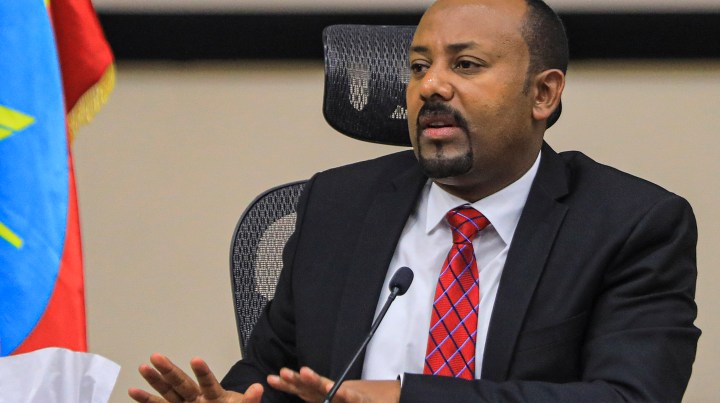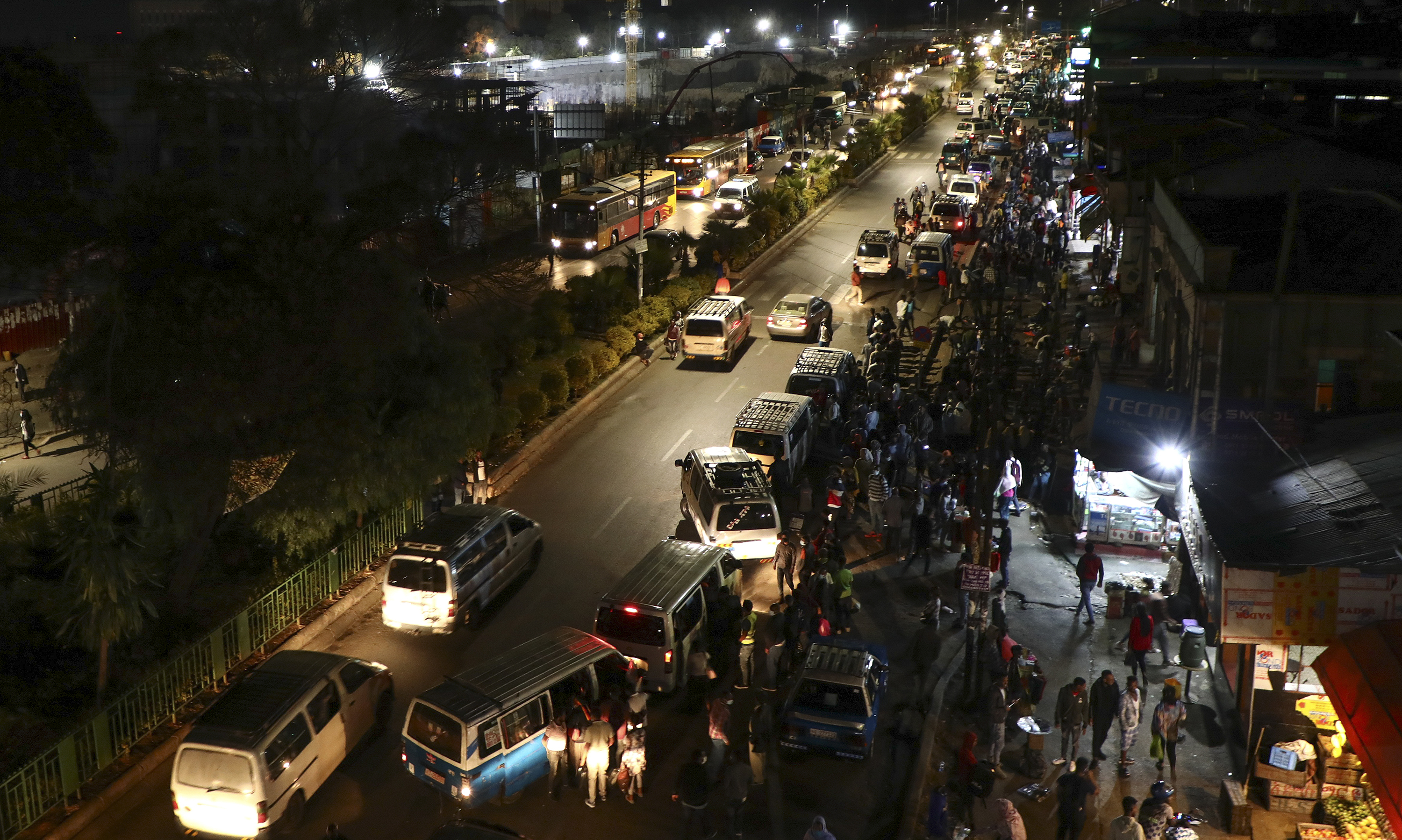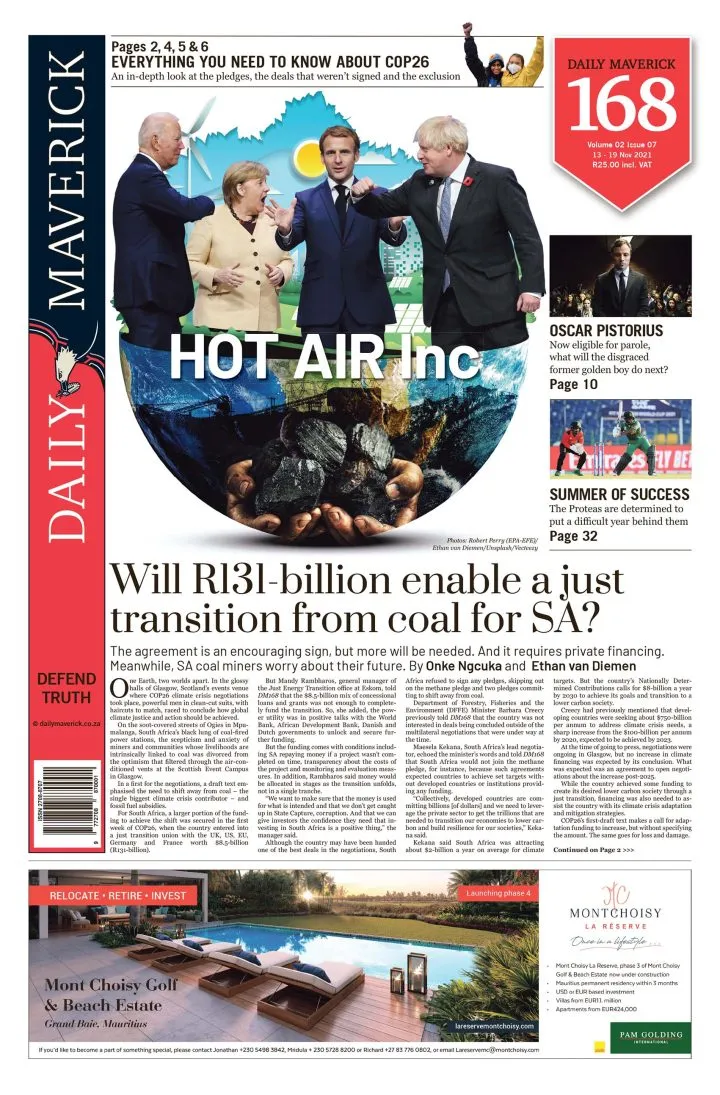PEACE OF WORK
‘Ignorance or naiveté’: How the world failed to foresee the fall from grace of Ethiopia’s Abiy Ahmed

The warning signs were there even before Abiy Ahmed won the Nobel Peace Prize, analysts say.
In December 2019, new Ethiopian Prime Minister Abiy Ahmed was awarded the prestigious Nobel Peace Prize. Less than two years later he stands almost universally accused of being a warmonger, relentlessly prosecuting war against his bitter political and now military foes, the Tigray People’s Liberation Front (TPLF).
The armies of the TPLF and its allies are almost at the gates of the capital Addis Ababa and still Abiy is rebuffing peace efforts as he seeks a military solution to the conflict and denies unrestricted movement of humanitarian aid to the desperate ordinary citizens of the northernmost Tigray province who have been devastated by the war.
How did Abiy fall so far from grace in such a short time? What went so badly wrong?
Could it be that the international community – and particularly the Nobel Peace Committee – perhaps desperate as ever for an African hero, completely overlooked the many warning signs about Abiy’s background, character and intentions when he unexpectedly became Ethiopia’s prime minister in April 2018 and ostensibly embarked on a path of reform, somewhat liberalising the country’s autocratic politics and making peace with its hitherto implacable foe, neighbouring Eritrean President Isaias Afwerki.
J Peter Pham, distinguished fellow at the Atlantic Council in Washington and recent US special envoy to the Sahel and before that the Great Lakes region, says if anyone was truly surprised by Abiy’s apparent about-turn after he got the Nobel Peace Prize, “it’s only their ignorance or naiveté they have to thank for that”.
As an expert on African security issues who was known to have influence with US policymakers, Pham enjoyed access to some of the highest officials of Ethiopia’s then-ruling Ethiopian People’s Revolutionary Democratic Front (EPRDF) government and was introduced to Abiy when he was still deputy director-general 0f the little-known Information Network Security Agency (INSA).
“INSA was the prototype – you could say it was first in class or among the first in class and was probably, at the time, best in class – of the African intelligence agencies that snooped around the internet,” Pham said. “It deployed Chinese technology very early on – this was before 2010 – to ferret out dissidents on the internet. And not only did it eavesdrop on them in cyberspace, but it then used electronic trails to locate where they were physically. And the presumption was that someone would then ‘pay them a call’.”
Abiy also sat on the board of state-owned Ethiopian Telecom – “just to make sure the Ethiopian telecoms monopoly did its part in this great national cause”.
“And so when you have this authoritarian background, the notion of Abiy as liberal reformer is difficult to credit.”
They miscalculated because they thought they knew him and underestimated both his ambition and his willingness to turn on the very people and institutions that brought him to power.
He adds that Abiy did not come to power through an election, but was “chosen by barely 100 members of the EPRDF executive committee and council” to replace Hailemariam Desalegn in the middle of a political crisis of mounting regional political protest. And Pham notes that many of the reforms usually attributed to Abiy, including the freeing of thousands of political prisoners, began during the last months of Hailemariam’s tenure.
The EPRDF leadership chose Abiy to be the new prime minister over the more popular Lemma Megersa, the candidate of the Oromo “street” whose protests helped bring about the collapse of the ruling coalition’s nearly three decades of domination, because Abiy was considered by regime insiders to be a safer pair of hands.
“They miscalculated because they thought they knew him and underestimated both his ambition and his willingness to turn on the very people and institutions that brought him to power.”
The world wilfully ignored these signs, Pham says – or acted in bad faith. “No one who knows this history can possibly imagine this was a set-up for democratic transformation.”
Unlike Nelson Mandela, who had shown the political wisdom to take just political power – and leave the reckoning of the economic grievances for another day, Abiy had overreached. He not only took political power – and then turned against those who put him in power – but also went after their economic interests, particularly those of Tigrayan elites who had dominated Ethiopian politics since the toppling of the brutal dictator Hailemariam Mengistu in 1991 and used their political ascendency to secure lucrative businesses and other assets.
Pham acknowledges that many Ethiopians were upset by what they believed to be Tigrayans exercising disproportionate control over large parts of the economy, but suggested it was not prudent for Abiy to have attacked both their political and economic power at once.
And Abiy not only alienated the Tigrayans but other ethnic groups, which was why the Oromo Liberation Army is allied with the TPLF against him. And last week a broader political alliance formed to oppose him.
Will Davison, Ethiopia expert at the International Crisis Group, founder of the journal Ethiopia Insight and former longtime correspondent in Addis Ababa, also believes that Abiy’s belligerence after he won the Peace Prize should have come as no surprise to the international community.
Those who were surprised had misread the circumstances in 2018 when he came to power, including his peace deal with Afwerki and his political priorities.
The peace deal was not particularly transparent or institutionalised and seemed to be a very narrow arrangement between Abiy and Afwerki. Davison said Afwerki had rejected offers from previous Ethiopian leaders to unfreeze bilateral relations – demanding that Ethiopia first withdraw from the bloodily disputed border areas between them, which the UN had ruled were Eritrea’s.
Yet he had accepted the same offer from Abiy. Why? Davison suspects this might have been because Abiy had assured Afwerki that his old enemy, the TPLF, would no longer be a dominant force in Ethiopian politics, or even that it would be completely eradicated.
Davison also believes Abiy mishandled the inevitable power shift away from the TPLF especially. It had indeed had its day in the sun and could no longer be the dominant power.
But Abiy blamed them and the Tigrayan securocrats for almost all of Ethiopia’s problems, some justifiably but some not.
“And that fed into a disastrous political falling-out which culminated in the power struggle and the civil war.”
Davison added that Abiy should also have accommodated the Oromo nationalist demands that had been so prominent in bringing him, a fellow Oromo, to power.
These included greater autonomy for Oromia and for the federal state to give back to Oromia more from its own resources.
He also noted that politicians from across the board, including Abiy’s own erstwhile Oromo allies, such as Lemma, had objected to his creation of the more centralised Prosperity Party to replace the federalist EPRDF. This appeared to be a precursor to formally changing the federal constitution, and centralising government power in Addis Ababa.
The TPLF was the most prominent critic of those rejecting the Prosperity Party and in 2020, when Abiy postponed the elections, ostensibly because of Covid-19, the TPLF also became the most defiant opponent of that move and decided to go ahead with its own elections in Tigray, arguing that Abiy had violated the constitution by postponing the elections.

Life continued as normal in the Ethiopian capital of Addis Ababa on 27 November 2020 as Prime Minister Abiy Ahmed ordered the army to move on the embattled Tigray regional capital of Mekelle after a 72-hour ultimatum to surrender expired the day before. Ethiopia’s military intervention came after Tigray People’s Liberation Front forces allegedly attacked an army base on 3 November 2020, sparking three weeks of unrest. (Photo: EPA-EFE/STR)
Davison does not blame Abiy entirely for the falling-out and then the war with the TPLF. He also accuses the latter of “pure constitutional brinkmanship. By rejecting the authority of the federal institution, they came up with their own provocative reading of the constitution which pushed, or at least gave the opportunity to those at the centre, to cast the region and the ruling party of Tigray as unacceptably defiant of the constitutional order – as a rogue region, a state within a state seeking to return to federal power. This was a major contributor to the civil war.”
Even though the federal constitution did accommodate group rights, and the sovereignty and right to self-determination of nationalities and peoples, “ultimately it was an act of defiance by the TPLF of the federal government to take this approach”.
Pham fears that by misreading Abiy well before the civil war started, the international community lost its opportunity to exert some leverage over him, now, to end the war. “Those who bear a lot of the responsibility for this are those within the international community who not only ignored his authoritarian past – thus signalling that they were prepared to overlook abuses – but then exacerbated it by puffing him up with what amounted to adulation. Then, in their embarrassment, they compounded their errors by ignoring the warning signs that, despite the progress that Abiy undoubtedly presided over in some sectors, things were nonetheless going terribly wrong. And so they lost what chance there might have been to head off the dire situation we have today.”
And so he is not optimistic about current international mediation efforts because the international community had not only missed some opportunities, but had also lost credibility in the process with both Abiy and many of those now fighting him.
The only chance for a “smooth landing” in the conflict is for Ethiopians themselves to do what the international community failed to do: “cast aside wishful thinking and other fantasies, face up to reality – including the impossibility of ‘having it all’ – and begin a national dialogue without preconditions”. DM168
This story first appeared in our weekly Daily Maverick 168 newspaper which is available for R25 at Pick n Pay, Exclusive Books and airport bookstores. For your nearest stockist, please click here.



















 Become an Insider
Become an Insider
Thank you for this excellent article! Read more articles about Abiy, but I couldn”t figure out enough about the role of this man. Now, I know!